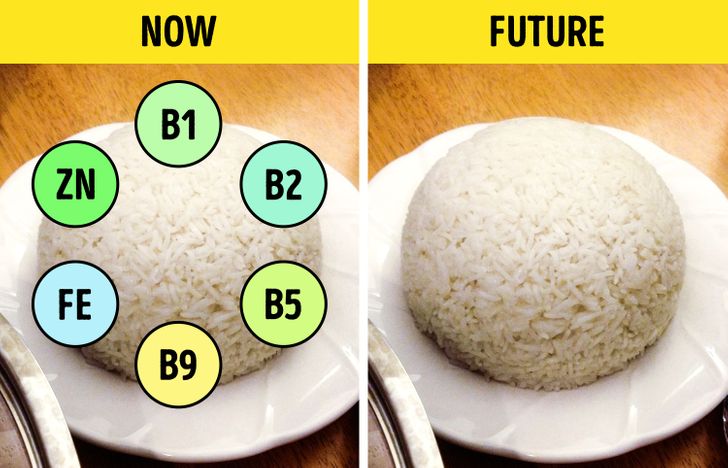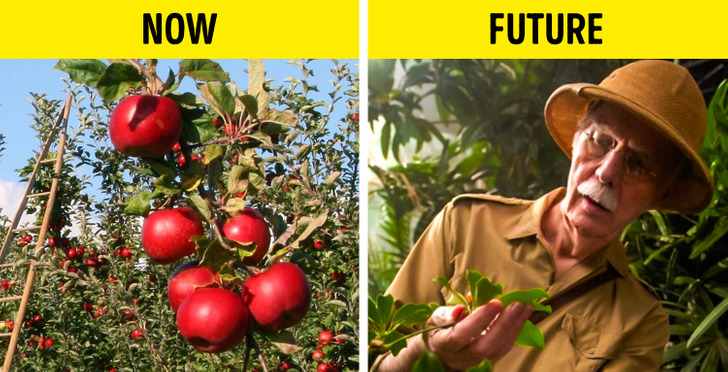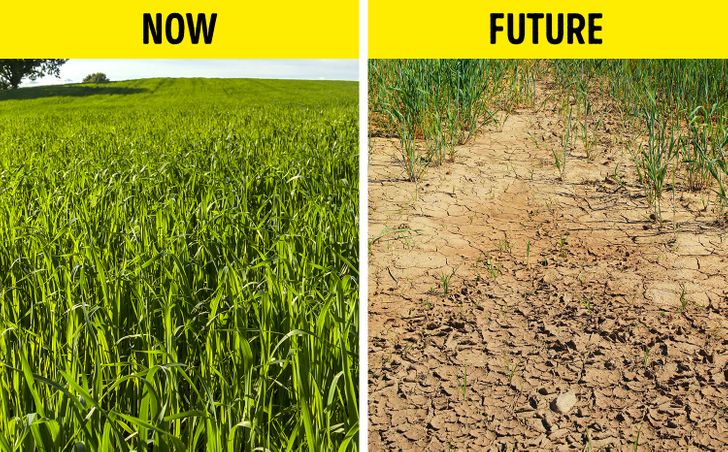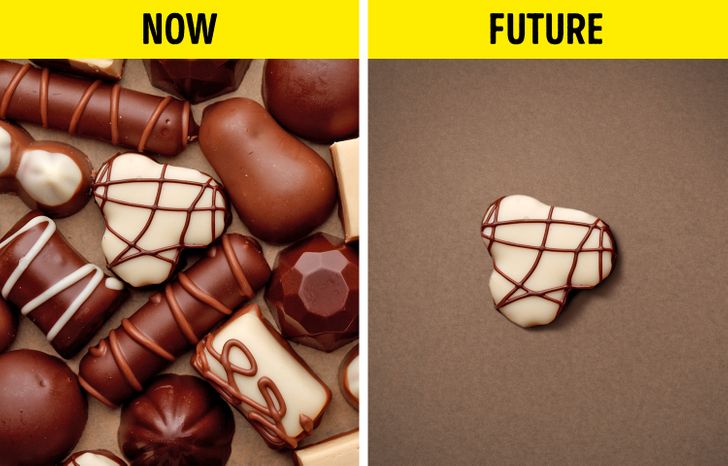It's okay! Because if the bees die we also die, so no worries!
7 Foods We Can Never Eat Again Because of Climate Change
Climate change forces humanity to adapt to new living conditions. And as the temperature rises and extreme weather becomes a new reality, farmers and researchers are growing more worried about the future of popular foods. There is an opinion that the average Joe won’t be able to buy some of the products that are popular now because they will become too rare or expensive. So it seems that we will have to live in a less yummy world in the future.
Bright Side brings you 7 products that are on the “endangered foods” list. Most of them have the potential to become too scarce for us in the upcoming years.
7. Tea
Who doesn’t like to relax with a cup of tea after a long, busy day? It seems that we will have to look for other methods to chill out in the near future. Specialists confirm that the tea sector will be greatly impacted by climate change if no preventive measures are taken. For example, increased vulnerability to insects or lower quality leaves are just a few problems the industry is going to face.
6. Honey
We have already mentioned that honey bees are in danger. There are different underlying reasons, but global warming is partly to blame too.
This study discovered that rising levels of CO2 reduce the protein in pollen, the main food source among bees. In the worst case, this problem can lead to them dying off since they will fail to get enough nutrition.
5. Rice
Rice crops are also under the threat of decline by 20-40%. But there is another crucial problem people can face. According to this article, rice can become less nutritious because of the rising concentration of carbon dioxide in the atmosphere. It means that people who rely on rice as their key food will have to look for ways to avoid health-threatening problems.
4. Orchard fruits
Apples, cherries, and peaches are symbols of the summer season. But we will probably have to replace them with some vegetables that are able to withstand the threat of global warming.
For example, the report, led by the University of Melbourne, shows that winters can become too mild for apple production. On the other hand, extreme heat and sunburn damage can be too severe for orchard trees during other months. As a result, growers can expect a shortage in the quality and amount of fruit.
3. Coffee
If you can’t decide which one is more effective to start a new day with — a contrast shower or a cup of invigorating coffee — the climate change process will make this decision for you.
Leading global coffee companies recognize the severe risks caused by global warming. Around 50% of the global area suitable for coffee production is in danger of being cut by 2050. People will have to face problems like rising prices, a negative impact on flavor and aroma, and supply shortages.
2. Wheat
It seems that this crop has already been negatively affected by climate change. This means that bread, sweet buns, and various baked foods can become a delicacy for our children or even us. According to this study, performed by Kansas State University, we are at risk of losing at least 1/4 of our global wheat production, as each degree that the temperature rises, cuts around 6% of it.
1. Chocolate
So, you’ve decided to have a snack. You slip your hand into the treat bag and find nothing. Your bar of chocolate is no longer there. This situation can become real. Although cacao trees are not affected by high temperatures, they require abundant rainfall and high humidity.
But, according to this report, extreme weather is not expected to be accompanied by heavy rains. These conditions can negatively impact cocoa production and result in one million fewer tons of powder, truffles, or bars of chocolate per year.
What product would you miss the most? Do you know of any other foods that can become rare in the future?
Comments
If bees die off then there is no hope for humanity and earth in general. No polenization means no plants. No plants means no life.
Thanks to the author for sharing this impressive blog. Really glad to read this article. This site has lots of information and it is useful for us.
Well, I hope that humanity actually starts doing something about this climate change. I mean, people already create special machines that remove gases from the air and stuff. Maybe not everything is lost for us? :)
It will be hard to imagine my life without my cups of sweet tea!
About time to have crickets as breakfast
Related Reads
18 Things That People Saw and Won’t Be Able to Forget

10 Tips That Can Up Your Self-Defense Game and Make You Safer

10 Tips That Could Help You in Emergency Situations

15 Human Body Features That Make Their Owners Unique

18 People That Know Where to Find Cool Clothes for Very Little Money

18 People for Whom Going Unnoticed Was Never an Option

12 Children Whose Creepy Revelations Will Unsettle Even the Bravest Adults

My ''Control Freak'' MIL Runs Our Marriage, and My Husband Lets Her

7 Mind Puzzles That Can Increase Your Brain Power

10 Small Acts of Kindness That Changed Someone’s Life Forever

10 Travel Disasters That Can Make You Swear Off Suitcases Forever

13 Disturbing Stories That Sound Fake, but Are 100% True







